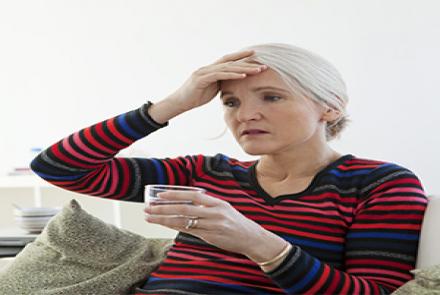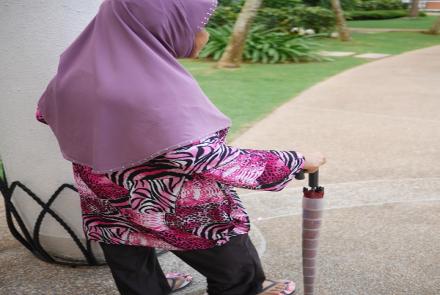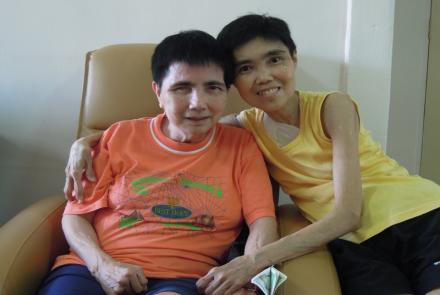
Dr Raka Kaushal, a senior nephrologist focused on various women’s issues amongst patients with Chronic Kidney Disease (CKD) in a webinar with PatientsEngage in English and Hindi. The questions raised from pregnancy complications, to hair loss, abnormal periods, menopause, oral contraceptives and more.
Here is a synopsis of the key questions addressed. Link to recording on youtube below. Each question is marked with the time stamp.
1:43 Are women with CKD more likely to have complications during pregnancy?
Yes definitely, fertility decreases when patient is on dialysis and in the pre-dialysis stage. It does improve after kidney transplantation though. Women who have CKD also have co-morbidities like Diabetes, Hypertension, and Anemia which again lower fertility and if they do get pregnant, they have higher morbidity rates. So women with CKD who are planning to get pregnant should have a planned pregnancy in consultation with their Nephrologist so that we can ensure she is at her optimal health and certain medications are stopped 6-8 weeks before conception.
3:08 Should women discuss pregnancy with their Gynecologist or Nephrologist?
Primarily, this discussion should be with the Nephrologist. There are certain set criteria that need to be followed before considering any planned preganncy:
- The time since transplant should be at least 2 years.
- Blood pressure should be stable.
- Renal function should be all normal.
- There should be no proteinuria (presence of protein in urine).
4:20 I had transplant 7 years ago. Nowadays, my BP remains low at 110/70. Antihypertensives drugs have been stopped but I continue to have dryness in the mouth and low urine output at mornings.
Any variation in blood pressure post-transplant needs evaluation to check on blood parameters and renal insufficiency. Your Nephrologist must be notified so that this can be further investigated.
5:16 I’m on dialysis and have hair loss. Is this due to hormones?
A lot of patients experience hair loss not only due to hormones but because of high urea and high creatinine levels. They can visit a Dermatologist who can prescribe topical creams for the scalp. Certain vitamin deficiencies can also contribute to hair fall so best to consult with a Dermatologist.
5:55 I’m stage 3 CKD, maintained for 7 years now with creatinine fluctuations. Why is pregnancy not advised to me?
For CKD patients, pregnancy has consequences in terms of both maternal and fetal morbidity and mortality. If pregnancy has not been advised, it is likely due to risk of high BP leading to preeclampsia, chances of stillbirth, premature labour, low birth weight etc. Secondly your preserved renal function can go down rapidly after a pregnancy causing progression to dialysis and need for transplant. These are serious implications due to which you should plan a pregnancy only if your Nephrologist advises you to do so.
7:08 My Gynecologist told me my eggs are unstable for surrogacy as I’m on high dose medications. Is it possible for me to use my egg? What medications can transplant patients continue if they get Covid?
If a woman can have a normal pregnancy, then there is no reason her eggs are not suitable. Surrogacy is not contraindicated but please speak to your Nephrologist and Gynecologist again. If a transplant patient gets Covid and if he is asymptomatic or has mild symptoms, then there is no need to taper any current medications. If Covid becomes severe, doctors will have to balance between complications of Covid and chances of organ rejection. Depending on severity of your Covid infection, certain immunosuppressants may be reduced. Do not alter your medications on your own!
9:37 My periods are abnormal and delayed since 15 days. I have CKD for the past 4.5 years with fluctuating creatinine of 2.5 to 5.5. Am not on dialysis.
CKD patients post stage 3 have a lot of hormonal changes which can affect the menstrual cycle. Some may develop amenorrhea (where periods completely stop) or irregular periods. If it is not troublesome, ignore them. If you have excessive bleeding or painful periods, then consult a Gynaecologist who can try to regularise your cycle with hormonal therapy. This may or may not be successful. We have noticed that once progesterone is stopped, periods become irregular again. Gynae consult is necessary for full investigation and treatment options.
11:03 Is unusual bleeding during periods related to kidney disease? I used to bleed profusely even after hormonal treatment, and a few months later I was diagnosed with kidney failure.
Yes definitely. Kidney damage is related to hormonal changes and hence absence of or irregular periods can be manifestations of the condition. Due to platelet dysfunction, bleeding tendencies also increase.
11:45 I’m 39 years old. Since a year, my periods which are regular are accompanied with nausea, vomiting, headaches and discomfort. Is this due to dialysis?
This may be due to the changes that occur in the body from the urea-creatinine level alterations. So, the blame lies on the disease and not dialysis treatment. You should consult your Gynecologist who can prescribe you with medications for symptomatic relief from the nausea, vomiting, headaches etc.
12:40 Post-transplant, how can females prevent burning and UTIs?
UTIs are more common in females and especially in transplant patients. Prevention tips include basic hygiene measures such as :
- Urinate frequently or when you have the urge. Don’t hold.
- Wash your vaginal area with water after every urination and dry with toilet paper.
- After passing stool, always wipe forwards to backwards and not the other way around.
- Avoid using pubic toilets. If you must, choose an Indian toilet or carry disinfectant spray or wipes that can be used before sitting on a western style toilet. Public toilets are a major source of UTI infections.
14:40 I had my transplant 3 years ago. I am now facing gas problems and have a fissure since 10 days.
Usually fissures occur due to constipation and that in itself can cause gas. Take fibre-rich foods and isabgol which will ease your constipation. Your Nephrologist can prescribe medications for gas relief. If you continue to have a fissure after the constipation has resolved, consult a Surgeon who can help treat it.
17:17 The month I was diagnosed for CKD was the last month I had my periods. I was 28 at the time. My doctor told me it was early menopause. Post-transplant, ,my periods restarted but only for a day every month.
Once creatinine normalises after transplant, periods do resume but they can be erratic. This is because of hormonal changes. If physically, it is bothersome, speak to your Nephrologist and Gynecologist.
18:35 My skin was always healthy but after my ESRD diagnosis, my skin has turned dark and dull.
Darkening of skin colour is a common symptom of end-stage kidney disease as urea build-up occurs. Skin health may not improve on dialysis but may change post-transplant. Cosmetic medications may not be very helpful.
19:32 15 years post-transplant. I get lots of fatigue after household work. I have to nap to regain energy. I’m only 33 years old.
Fatigue should not occur if transplant is working properly and creatinine levels are normal. You should get your fatigue checked out to rule out low haemoglobin or medication side-effects.
20:34 CKD patient since 13 years, stage 5. In January, my potassium levels increased but are now in control. Can I have foods of my choice occasionally like rajma, chana, kadhi?
Kadhi, rajma, chana may affect your protein levels but is okay to consume once in 10-15 days. However certain vegetables and fruits carry high potassium content, which must be avoided. High potassium levels (above 6) in the body can be life-threatening.
22:13 How much protein intake should be restricted with regards to creatinine levels?
Ideally, you should consult a Renal Dietitian, who will measure your weight and calculate protein requirements to chart out a diet plan for you. Grossly once CKD crosses Stage 2, protein intake is restricted to 0.8 grams per kilo (of body weight) of low biological value.
23:32 Can transplant patients take Ayurveda or Homeopathy for gas or constipation?
Not at all because transplant medications have contraindications with various other drugs. With fields that have no research into these drugs, it would be unadvisable to take that risk of mixing medications as this can lead to organ rejection. Hence, please do not take any drugs except those prescribed by your Nephrologist.
24:45 In June I had fever which went up to 105F. I was treated with Augmentin for 10 days and now my creatinine has risen to 6.0. How can I lower my creatinine?
Any infection in the body can cause creatinine to rise. Around 6-8 weeks after the infection, the creatinine may go back to your initial level of 3 or settle at 4. If this does not happen, then chance of creatinine recovery is less. Best to wait and watch.
26:48 How to manage endometriosis with medicines. I’m currently taking Wysolone.
Endometriosis cannot be managed with medications; the only other option is to undergo surgery.
27:25 As a diabetic, how can I maintain my diet?
You need to go to a qualified dietician who can draw out a diet chart for you. Discuss with the dietician on what is allowed and what are your food preferences, so a balance is reached.
28:15 What type of oral contraceptives are safe to use?
Do not take any OTC drugs, go to your Nephrologist who will prescribe the right contraceptives for you. Post-transplant, oral contraceptives will have to be avoided because they can lead to organ rejection.
30:20 Are symptoms of menopause worse for CKD patients? How can CKD patients deal with complications of menopause like osteoporosis?
Certain symptoms like hot flashes, nausea, vomiting, palpitations are already pre-dominant in CKD patients. During menopause these overlapping symptoms are bound to occur or increase. Treating these symptoms is difficult as it can interfere with CKD co-morbidities. Rely on alternative therapies like yoga, and exercise, and make lifestyle changes such as eating healthy (avoiding fatty and sugary foods). This will be helpful! Try to take less medications because side-effects and tolerance of medications is more difficult for kidney patients. CKD patients do have weak bones and menopause can add to this problem. Make sure you maintain your calcium and phosphorus levels.
33:55 Is cycling safe for post-transplant patients?
Cycling is a great form of aerobic exercise. Make sure to avoid injuries, so cycle in the right lane and in speeds you can control. There is no other contra indication for cycling.
35:01 I’m 7 years post-transplant now. Have a cyst on my breast. My gynaecologist said it was benign. Please advise.
For every breast cyst, ideally an FNAC (fine needle aspiration) should be done especially for post-transplant patients because chances of malignancy are higher.
36:03 I experience some spotting between periods. I’m a post-transplant patient.
Hormonal changes are normal post-transplant. One visit to the Gynecologist is warranted to check it out. If hormonal tests and ultrasound is normal, then there is nothing to worry about.
Dr. Raka Kaushal is Director- Nephrology & Renal Transplant Ivy Hospital, Mohali and Khanna
















